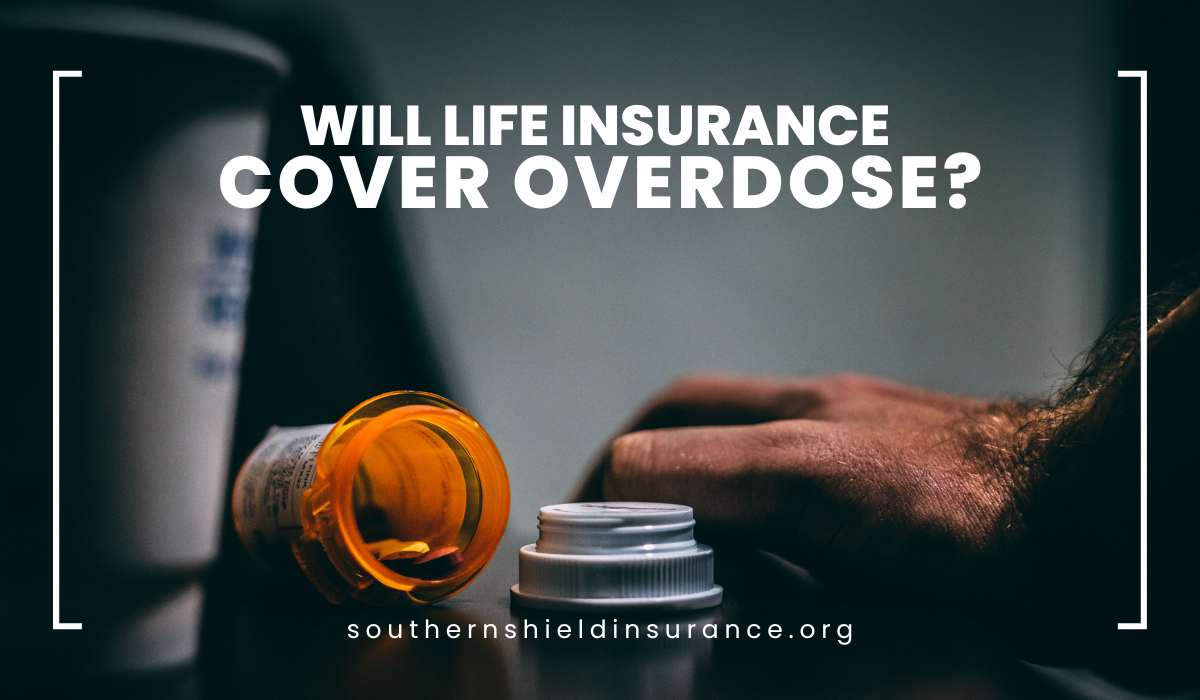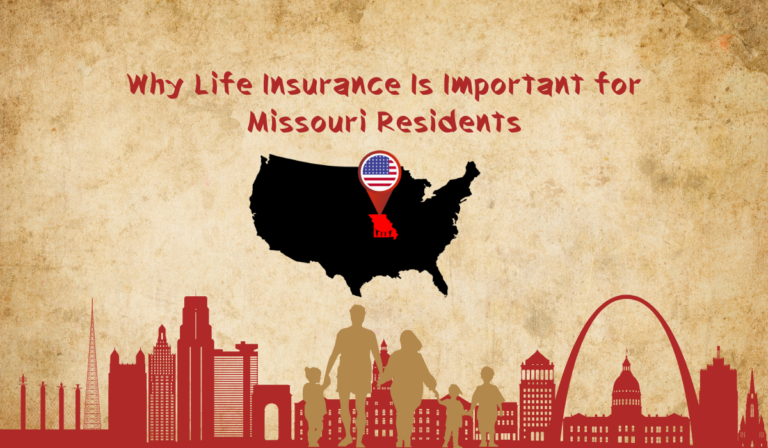Yes, life insurance can cover an overdose, but it depends on the policy. Insurers may deny claims based on specific circumstances.
Life insurance is a safety net for your loved ones. It provides financial support in difficult times. But what happens if the cause of death is an overdose? This question is crucial, as drug-related deaths are on the rise. The answer isn’t simple.
Different policies have different terms. Some may cover it, while others may not. Factors like the type of drug, intent, and policy details matter. Understanding these can help you know what to expect. This blog will explore the nuances of life insurance and overdose coverage. Stay with us to learn how to navigate this complex topic.
Life Insurance Basics
Understanding life insurance can be complex, but it’s crucial. It provides financial security to your loved ones. If you pass away, your family receives a death benefit. This money can help cover expenses and debts.
Types Of Policies
There are several types of life insurance policies. Each serves different needs. Here are the main ones:
- Term Life Insurance: Offers coverage for a specific period. If you die during this term, your beneficiaries receive the death benefit.
- Whole Life Insurance: Provides coverage for your entire life. It also includes a savings component, known as cash value.
- Universal Life Insurance: This policy offers flexible premiums. It also has a savings component that earns interest.
- Variable Life Insurance: Includes a cash value account that can be invested. The death benefit and cash value can vary based on investment performance.
Common Terms
Here are some important terms you should know:
|
Term |
Definition |
|---|---|
|
Premium |
The amount you pay for your life insurance policy. |
|
Beneficiary |
The person or people who receive the death benefit. |
|
Death Benefit |
The money paid to the beneficiary when the policyholder dies. |
|
Cash Value |
A savings component that builds value in permanent life insurance policies. |
|
Underwriting |
The process of evaluating risk and determining premiums. |
Understanding these basics is the first step. It helps you choose the right policy. It ensures that your loved ones are protected.
Overdose And Life Insurance
Life insurance is a crucial safety net for many families. But what happens if the cause of death is an overdose? Understanding how life insurance policies handle overdose claims can be vital. This section will dive into the complexities of overdose and life insurance coverage.
Definition Of Overdose
An overdose occurs when someone takes more of a drug than the body can handle. This can lead to serious health issues or even death. Overdoses can be accidental or intentional. Both types can impact a life insurance claim.
Policy Clauses
Life insurance policies often contain specific clauses related to overdose. These clauses detail how claims are handled if death results from drug use. Some policies may deny claims if the overdose was intentional. Others might cover accidental overdoses but limit the payout. It’s crucial to read and understand your policy’s terms.
Insurance companies look for any signs of drug abuse in medical records. They may investigate the cause of death thoroughly. If the overdose is ruled accidental, the claim may be approved. But if it’s deemed intentional, the claim might be denied.
Read More: Does Life Insurance Pay for Suicidal Death
Accidental Overdose
An accidental overdose occurs when someone takes more medication than prescribed. This can be due to misunderstanding, confusion, or mixing substances. It is a tragic event, often leading to severe health problems or death. Families of victims often wonder if life insurance covers such incidents. Understanding your policy is crucial.
Policy Coverage
Life insurance policies vary in their coverage of accidental overdoses. Some policies may include it under accidental death benefits. Others might exclude it due to specific clauses. Reviewing your policy details can offer clarity. Check for any exclusions related to drug use. Policies may differ based on the insurer’s terms and conditions.
Claim Process
Filing a claim for an accidental overdose follows a specific process. First, notify the insurance company about the death. Provide necessary documentation, like the death certificate and medical reports. The insurer will investigate the circumstances of the overdose. This ensures the claim aligns with the policy terms. Cooperation with the investigation process is essential. It can help expedite the claim approval.
Intentional Overdose
Life insurance can be a safety net for loved ones after a policyholder’s death. One critical aspect is whether it covers deaths by overdose. An intentional overdose raises many questions.
Exclusions
Life insurance policies often have exclusions. These are specific situations where they won’t pay out. Intentional overdose is a common exclusion. Insurers view it as self-inflicted harm. This makes it different from accidental overdose.
Understanding policy details is crucial. Most policies exclude payouts for suicides within the first two years. Intentional overdoses fall under this category. It’s vital to read the policy’s fine print. This helps in knowing what is covered and what isn’t.
Legal Implications
Intentional overdose can have legal implications. Authorities may investigate such deaths. This can delay insurance payouts. Insurers may require proof of accidental overdose. This is to rule out intentional harm.
Families may face legal scrutiny. This can be stressful. It’s essential to understand these potential hurdles. Legal complications can affect the payout process. Being informed helps in managing expectations.
Policy Exclusions
Understanding policy exclusions is crucial when considering life insurance. These exclusions specify circumstances where the insurer will not pay out benefits. This helps both the insurer and the insured know the terms clearly.
Self-inflicted Harm
Most life insurance policies have exclusions for self-inflicted harm. This means if the policyholder dies by suicide, the insurer may not pay the death benefit. This clause is usually in place for the first two years of the policy. This period is known as the contestability period. After this period, some policies may cover suicide. Always check your policy details to understand this exclusion.
Illegal Substances
Another common exclusion is for deaths caused by illegal substances. If the policyholder dies from an overdose on illegal drugs, the insurer may deny the claim. This exclusion is in place to discourage risky behavior. It protects the insurer from paying for deaths that result from illegal activities. Policyholders should know this exclusion to avoid unpleasant surprises for their beneficiaries.
| Exclusion Type | Details |
|---|---|
| Self-Inflicted Harm | Usually excluded for the first two years; terms vary by policy. |
| Illegal Substances | Deaths from illegal drug use are often not covered. |
By understanding these policy exclusions, you can make informed decisions. Always read the fine print of your life insurance policy. This ensures you know what is covered and what is not. This knowledge helps protect your loved ones financially.
Claim Denial Reasons
Many people wonder if life insurance will cover an overdose. Claim denial is a common concern. Insurers have specific reasons for denying claims related to overdose deaths. Understanding these reasons can help policyholders avoid pitfalls.
Misrepresentation
Insurers may deny claims if there is misrepresentation in the application. This means providing false information when applying for a policy. Misrepresentation can include lying about drug use history. It can also involve hiding existing health conditions. Accurate information is crucial. Insurers rely on this data to assess risk. Misrepresentation can lead to claim denial, especially in overdose cases.
Policy Lapses
A policy lapse occurs when premiums are not paid on time. Insurance companies require regular premium payments. Missing payments can result in policy cancellation. If a policy lapses, coverage stops. This means no payout for beneficiaries. Keeping the policy active is essential. Regular payments ensure continuous coverage. Policyholders must stay on top of their payment schedules. This helps avoid coverage gaps and potential claim denials
Appealing A Denied Claim
Finding out that your life insurance claim has been denied can be overwhelming. This is especially true if the denial is due to an overdose. But don’t lose hope. You have the right to appeal the decision. Understanding the process and gathering the right information can make a big difference.
Required Documentation
Proper documentation is vital in the appeal process. The following documents are often needed:
- Death Certificate: This official document is necessary to confirm the cause of death.
- Medical Records: These records provide a history of the insured’s health and treatments.
- Autopsy Report: An autopsy report can offer detailed insights into the cause of death.
Gathering these documents may take time, but they are crucial. They help in building a strong appeal case.
Legal Assistance
Appealing a denied claim can be complex. Seeking legal assistance might be beneficial. A lawyer experienced in insurance claims can:
- Review your policy to understand its terms.
- Help gather and organize necessary documents.
- Communicate with the insurance company on your behalf.
Legal experts can provide valuable guidance. They can navigate the legal complexities and improve the chances of a successful appeal.
Tips For Policyholders
Understanding life insurance policies can be complex. Especially with sensitive issues like overdoses. Policyholders need to stay informed and proactive. Here are some essential tips.
Reading The Fine Print
Carefully read your policy document. Look for clauses related to drug use and overdoses. Insurance providers often have specific terms and conditions.
These can affect the coverage in overdose cases. Pay attention to any exclusions mentioned. Exclusions can be areas where the policy won’t pay out.
Understanding these exclusions is crucial. It helps you know the boundaries of your coverage. If anything is unclear, seek clarification.
Consulting An Agent
Reach out to your insurance agent. Agents can explain complex terms in simple language. They help you understand the specifics of your policy.
Discuss the scenarios involving overdose. Ask direct questions about coverage in such cases. The agent’s insights can be very helpful.
An agent can also help you update your policy. Regular updates ensure your policy remains relevant. This is especially important if your circumstances change.
Consider scheduling regular reviews with your agent. This ensures you stay informed about your policy. Proper communication with your agent leads to better understanding and peace of mind.
Frequently Asked Questions
Can Life Insurance Deny An Overdose Claim?
Yes, life insurance can deny an overdose claim. This often depends on the policy terms. If the overdose is deemed intentional, coverage might be denied.
Does Accidental Overdose Get Covered?
Accidental overdoses may be covered by life insurance. Policies often distinguish between accidental and intentional overdoses. Check your specific policy details.
How Do Insurers Determine An Overdose Claim?
Insurers investigate the circumstances of the overdose. They review medical records and police reports to determine if it was accidental or intentional.
Are Overdose Claims Common In Life Insurance?
Overdose claims are becoming more common. The increase in opioid and prescription drug abuse has led to more such claims in recent years.
Conclusion
Life insurance coverage for an overdose varies by policy. Some policies exclude it. Always read the policy details carefully. Speak with your insurance agent for clarity. Understanding your policy helps avoid surprises. Protect your loved ones with the right coverage.
Insurance can be complex, but knowledge is power. Make informed decisions about your life insurance. Secure peace of mind for you and your family.





